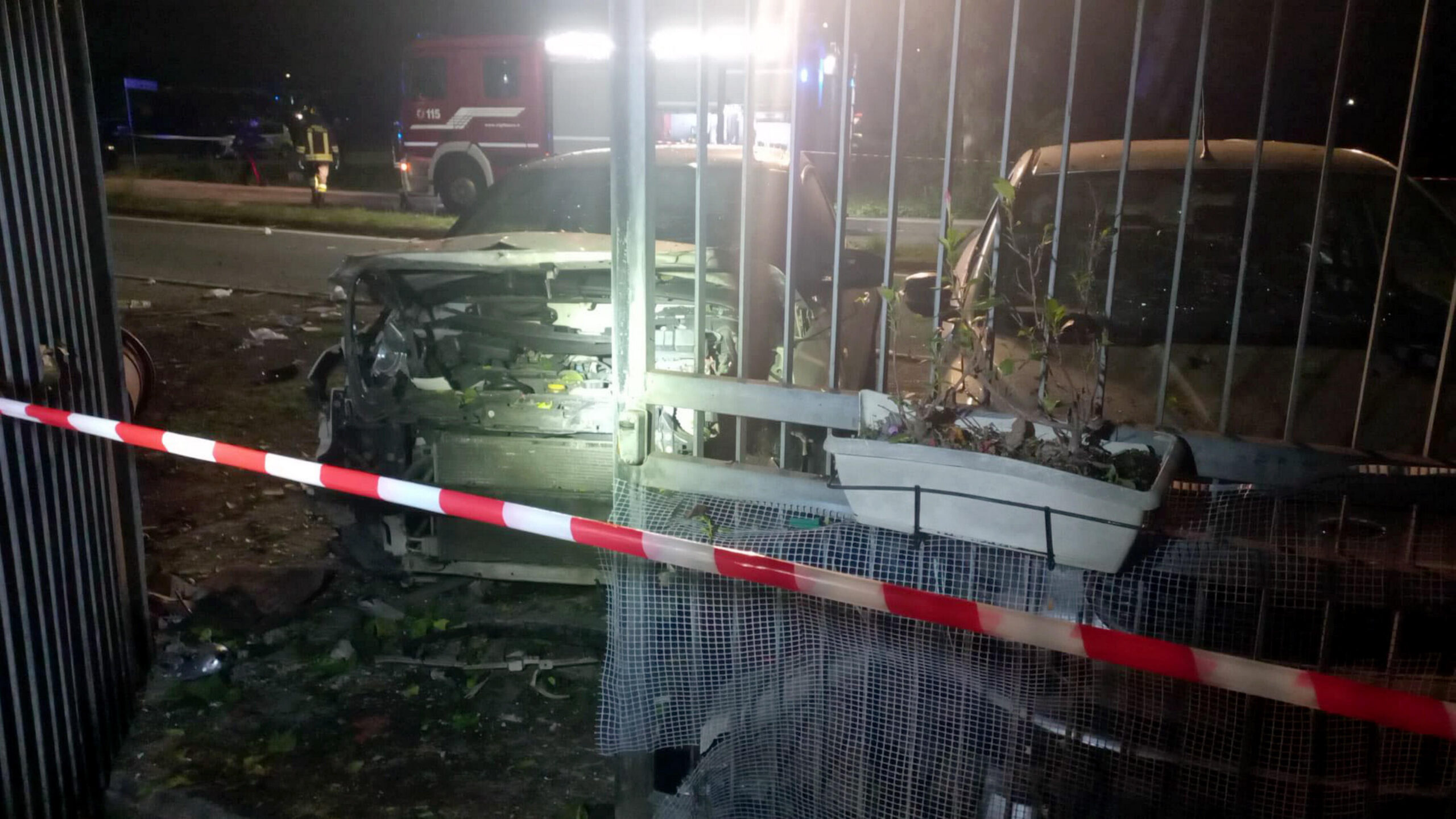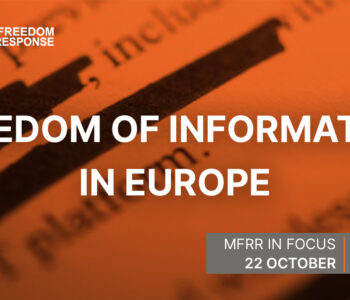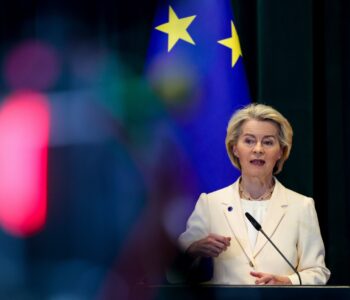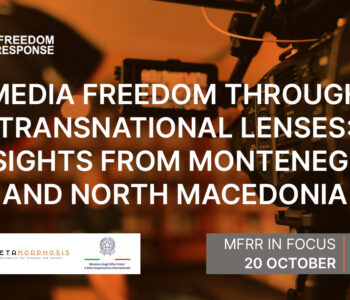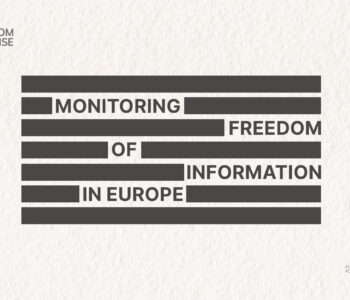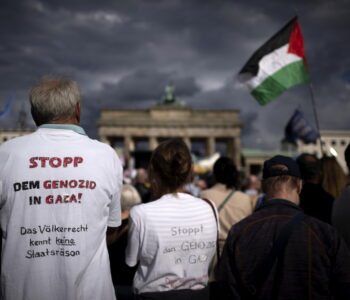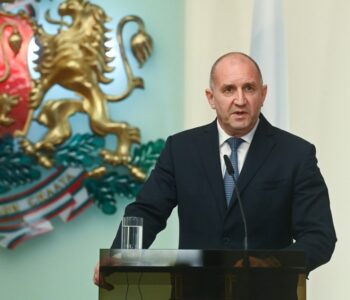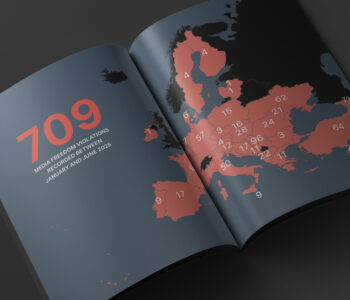Since October last year, our organisations have recorded extraordinary pressures on media freedom across the region. The abrupt shutdown of Al Jazeera Balkans, the intensifying political pressure on the N1 and Nova TV channels and the launch of a TV channel by the Kremlin’s propaganda outlet RT Balkan, represent existential threats to independent and reliable journalism across the region.
Furthermore, the recriminalisation of defamation and the adoption of a foreign agent law in Bosnia and Herzegovina’s Republika Srpska, as well as widespread reductions in funding for independent media, paint a grim picture of the media landscape, and the one in which independent and small newsrooms may not be able to survive.
Pressures on public broadcasters, private outlets and media authorities in Albania and Kosovo together with politicians’ attempts to restrict media access to them underscore the serious dangers posed to journalists’ right to inform and the citizens’ right to information.
Mapping Media Freedom (MapMF) has registered 381 alerts affecting 617 journalists and media workers in the six countries of the Western Balkans, with a stark 222 cases registered in Serbia alone. The current level of violence against journalists in Serbia is unique in any EU member state or candidate country. Reporters Without Borders (RSF) has documented 34 physical attacks committed in less than two summer months against media professionals by political activists and law enforcement agents. To this day, the annual tally of physical violence in 2025 stands at 82 cases, according to RSF data – an unprecedented level judging by the records of the Independent Journalists’ Association (NUNS) kept since 2008. The Committee to Protect Journalists (CPJ) has documented that as the government toughened its stance against the protests, Serbian journalists have increasingly reported being deliberately targeted by police, especially when covering police violence.
The cases documented in Serbia by the Media Freedom Rapid Response (MFRR) confirm the severity, having documented physical, verbal and other attacks against 315 journalists, media outlets and journalists’ associations since 1 November 2024. These attacks are incited by the frequent unfounded accusations against the press by, among others, Serbian President Aleksandar Vučić himself. In September 2025 alone, the Slavko Curuvija Foundation registered 141 cases of verbal attacks on journalists and media by high-ranking state officials and members of the parliamentary majority.
Since the beginning of the anti-corruption protests, our organisations have repeatedly raised these issues and asked the Commission to send a clear signal to Belgrade about the consequences that attacks on the press, the support for Russian propaganda, and a systemic failure to protect journalists could have for the European Union enlargement process and disbursement of EU Funds. The MFRR mission to Belgrade in April 2025 explicitly raised alarm about the crisis for media freedom, and issued urgent recommendations to the Serbian authorities and the European Commission.
Since this call for action, pressure on independent reporting and media freedom has only worsened. In June, the process to appoint new members of the Regulatory Authority for Electronic Media (REM) council was again conducted in an opaque and discriminatory manner, making a mockery of EU-mandated reforms. In recent weeks, United Group media N1 and Nova TV have faced serious threats to their independence, sparking renewed concerns of direct political meddling in television news channels reporting on the protests. This pressure also increasingly puts journalists and outlets in financial difficulty, with several outlets at the brink of financial collapse.
Failure to effectively challenge the Serbian authorities sets a worrying precedent for other accession countries, especially those in the region. Both media and their audiences on the ground need to know that the European Union enlargement process will meaningfully contribute to building a safe environment for journalists and guarantee the public’s right to credible information in the Western Balkans, with Serbia as the most stark example. Press freedom remains a crucial requirement for building healthy democracies and the promotion of European values in the Western Balkans.
The undersigned organisations therefore call on President von der Leyen to make clear demands to the authorities regarding the protection of media freedom and safety of journalists, in particular for Serbian President Vučić. The instruments available to the Commission, including the suspension of EU funds, should be enacted to send a clear message about the European Union’s commitment to independent journalism and media freedom in the region.
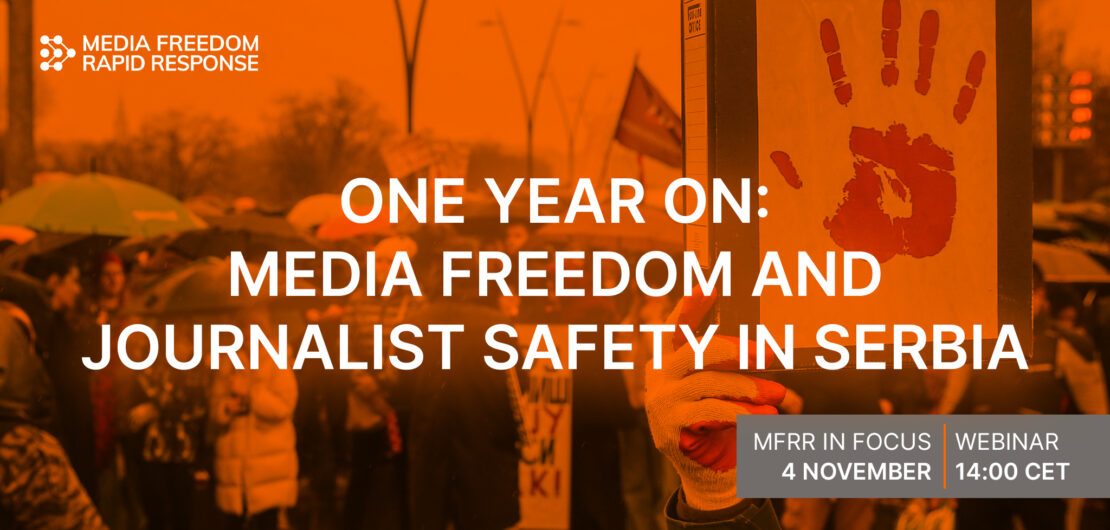 Allgemein
Allgemein





